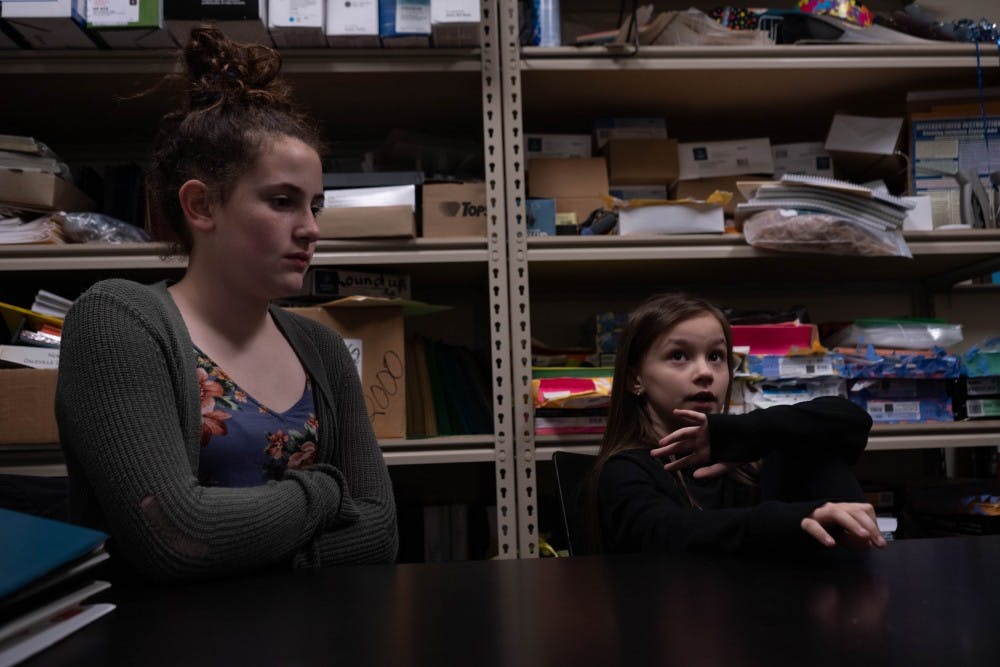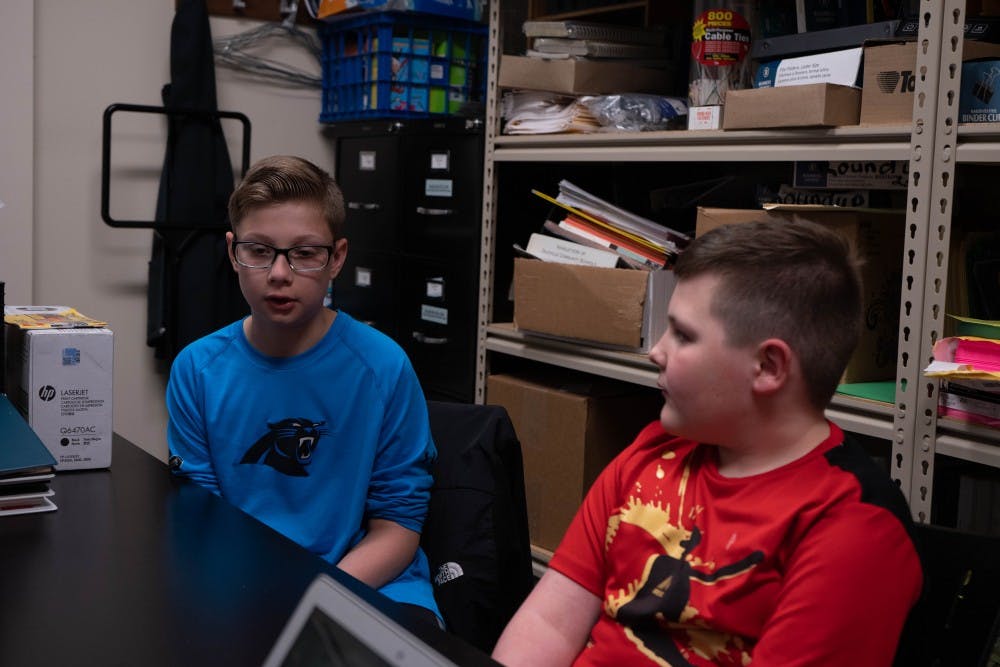Editor's Note: This story is part of The Partnership Project, a series of content written in an effort by The Daily News to follow the formal collaboration of Ball State University and Muncie Community Schools. Read more in this series here.
When entering through the main doors of Daleville Elementary, visitors would see pictures of different pairs of students posted on the wall, behind a yellow background. These pictures display the big and little pairs in the school’s Mentor Program.
Amber Fox, social worker, said she saw the need for children to meet and be paired with other students after having a child come into her office crying because his father had been deported and he had no one to spend time with.
The Mentor Program’s mission statement says the purpose of this program is to provide additional support while strengthening peer relationships and provide each student the opportunity to advance their social and emotional growth, Fox said.
In the program, students are split into big and little pairings, which is based on grade level and maturity. Students grades 3-6 are bigs and students K-2 are littles. Bigs serve as an example of how their littles should behave.
When students come to school, it is possible they have things at home that are weighing on them. This time with their big or little allows for students to have another opportunity to talk about their feelings and have another form of support.
Students meet once a week to do group activities, work on homework and talk with their big or little about the daily aspects of their lives.

(Left to Right) Madelyn Rees, 10, and Kamme McNiel, 9, talk at a table in Daleville Elementary School April 16, 2019. McNiel hopes to one day to also be a big like Rees. Scott Fleener, DN
For students like Kamee McNeil, 9, this gives them time to talk to about things that may be on their mind with her big, Madelyn Rees, who is a year older than her.
This time with their big or little, gives students another form of support that they can rely on.
“If a kid comes into school and is not getting basic needs met — clothing, food, shelter — we can’t have them in here worried about passing a state test,” Fox said.
Using money they received from a grant, Daleville was able to hire Fox, who created the program.
By having grants that focus on the counseling aspect of school, schools are now able to hire additional people like counselors or social workers, and start programs that may benefit students.
In 2016 the Lilly Endowment allowed for Indiana schools to apply for the grant. The endowment announced in 2017 that it would do a second round of grants.
According to the Lilly Endowment, the counseling Initiative was created to “increase significantly the number of K-12 students in Indiana who are emotionally healthy, realize academic success, graduate from high school, obtain valuable postsecondary credentials, certifications and degrees necessary for meaningful employment ... ”
After being turned down in the first round of grants, the Yorktown, Wes-Del, Daleville, Cowan, Muncie and Liberty-Perry community schools, Burris Laboratory School and Inspire Academy applied jointly for a grant and formed the Delaware County Coalition.
A report from the Lilly Endowment states that the schools received $1,393,400 total in the second round of grants. The money each school received ranged from $100,000 to $511,400, the latter funding going to MCS.
Lily Endowment’s request for proposal document states that the four-year grant covers “school social work, school counseling, social and emotional health counseling, and guidance relating to academic planning and scheduling as well as college and career preparation.”
“So whatever path they choose, whether they go college bound or they say, ‘No, I’m going to work right after high school,’ we’re hopefully setting them up to be wholly,” said Michelle Cooper, professional school counselor at Yorktown High School.
Cooper said this helps in terms of “a whole self approach to walk out the doors and be able to be successful in whatever they choose.”
In order to be considered for the grant, counselors had to begin the application process. The application process took several months to complete and involved counselors from each of the schools meeting together to figure out their budget and the areas they wanted to focus on. Through surveys and talking to students, they determined what programs needed to be implemented.
Working with Project Leadership, which according to its website is “a program funded by a Lilly Endowment grant designed to increase educational attainment,” allowed them to develop an outline with different categories the coalition wanted to work on.
The coalition’s work allowed for the county to work towards the same goals and for each school to focus on areas they specifically needed to improve, said Rachel Milligan, middle and high school counselor at Burris Laboratory.
As part of the grant, evaluations need to be done at least once every year. Evaluations are based on set goals and data collected.
Schools will pull the data collected towards the end of the year and look at the results from the programs implemented, said Tracy Chambers, director of guidance at Wes-Del.
Although they have been awarded the grant, The Delaware County Coalition still meets to share ideas with one another.
“We work towards our goals and we collaborate as a county to see if we can get some shared language and share some resources for professional development,” Cooper said.
Contact Ayah Eid with comments at azeid@bsu.edu or on Twitter @AyahEid2.





